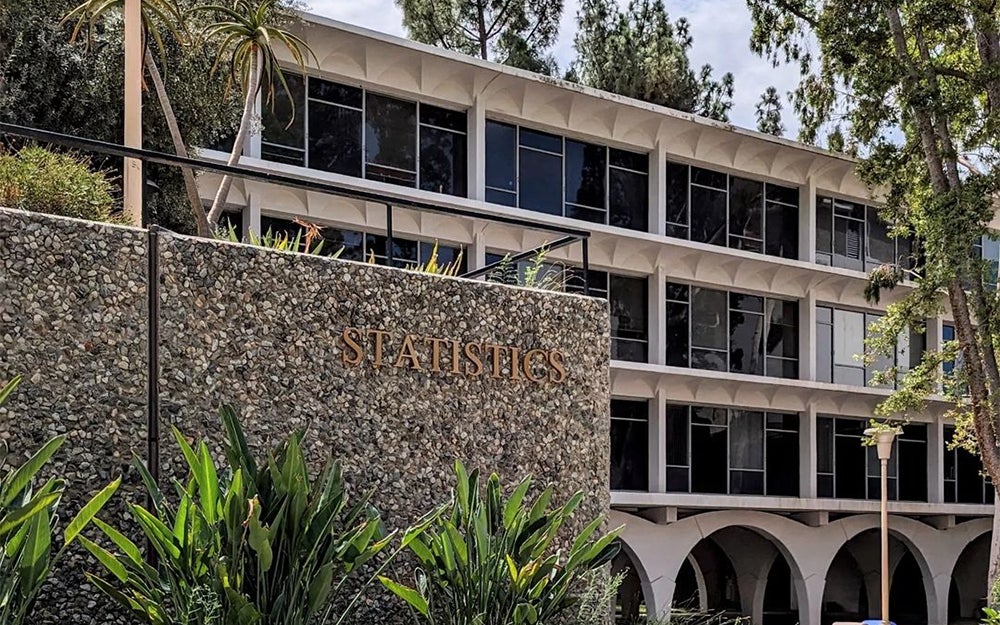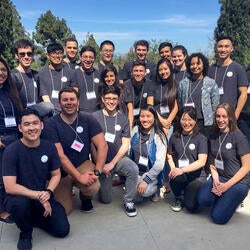Statistics is the science of gathering, analyzing, and understanding data. It helps us uncover meaningful patterns, trends, and insights, facilitating informed decision-making and a deeper understanding of the underlying phenomena. By using statistical methods, we can summarize information, make predictions, and test ideas, making it a crucial tool for various fields such as science, economics, social sciences, business, and healthcare.
What makes Statistics unique at UCR?
The Statistics major covers a broad range of topics relevant to statistics, including programming languages like Python, R, and SAS, data visualization, database management, machine learning, data mining, and big data analytics.
In general, what are Statistics professors investigating?
- What are the key challenges in integrating statistical techniques with biological knowledge for more accurate predictions in bioinformatics?
- How can statistical methods be applied to analyze and interpret biological data, such as genomics, proteomics, or metabolomics data?
- How can we establish causality in observational studies, especially when randomization is not feasible?
- What are the best practices for designing experiments in various scientific and industrial domains?
- What are the current frontiers in machine learning, and how can they be applied to diverse applications?
- How can mathematical models be developed to describe and simulate complex real-world phenomena?
Why Statistics at UCR?
An undergraduate degree in Statistics at UCR offers a strong foundation in mathematical and analytical skills, essential for interpreting data and making informed decisions. Graduates develop robust problem-solving abilities and are in high demand across various industries such as business, finance, healthcare, and research. The degree opens doors to diverse career opportunities, including roles as data analysts, statisticians, and market researchers, ensuring long-term relevance and employability in today's data-driven world.
4+1 Program
The Department of Statistics offers a combined B.S.+1 Statistics M.S. program, designed to allow successful B.S. graduates to complete the Master of Science degree in Statistics in one year. Admitted students are allowed up to 12 units of approved coursework to be counted towards the MS degree requirements. A student should apply for the B.S.+1 Statistics M.S. program before the start of their senior standing year. Please check this page for more information.
Statistics research at UCR
- Bioinformatics
- Causal Inference
- Data Mining
- Experimental Design
- Functional Data Analysis
- High Dimensional Statistics and Inference
- Longitudinal Data Analysis
- Machine Learning and Deep Learning
- Mathematical Modeling
- Markov Chain Monte Carlo Methods
- Mixture Models
- Multiple Testing
What industries can I get into with a Statistics degree?
- Finance
- Healthcare
- Actuarial Science
- Epidemiology
- Biostatistics
- Government Policy Analysis
- Market Research
- Quality Control
- Research
- Teaching
What can I do with a Statistics degree?
Students work in all fields that use data to guide decisions as data analysts, data scientists, project managers etc. in tech companies, consulting companies, banks, government, sports teams, entertainment companies, pharmaceutical companies, retailers, just to name a few.
What you should know
One thing to consider is whether you love telling stories with data. Statistics is not just to report summary numbers, it’s using data to provide insights to guide decision-making. So make sure you like the process of gathering data, organizing it, understanding it, and using suitable methods to extract/mining information from it.
Advice for success
Find opportunities to connect with your professors and classmates by getting involved in department activities and clubs. The department organizes events such as annual Welcome lunches and Pi Day Celebrations to provide faculty, staff, and students with a chance to connect outside of the classroom. We also have the Highlander Statistics Society (HiSS) which is UCR’s statistics club. HiSS focuses on bringing together students from all disciplines who are interested in statistics by promoting academic achievement through activities such as coding workshops, social events, and participation in data challenges.
Consider this
Students have abundant research opportunities with professors to gain practical experience in applying statistics to real-life problems. Furthermore, we offer summer research opportunities for undergraduates, complete with stipends.
Available Minor in Statistics
Statistics Minor




